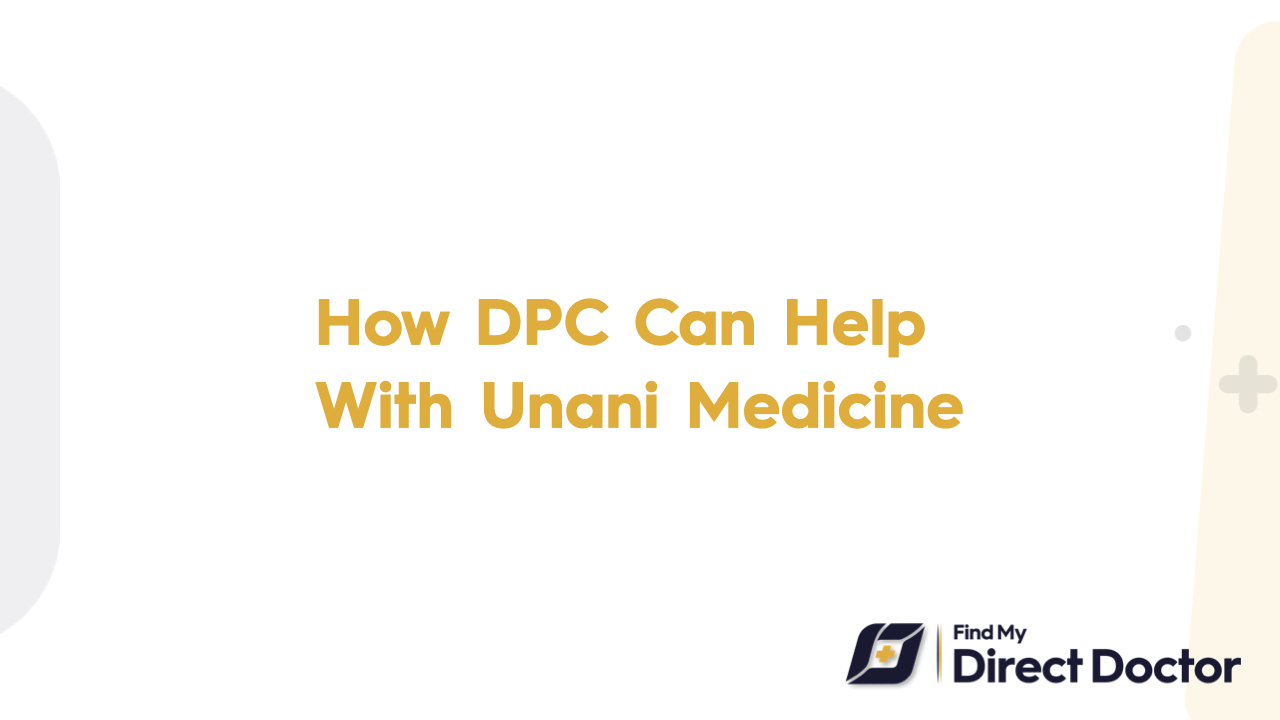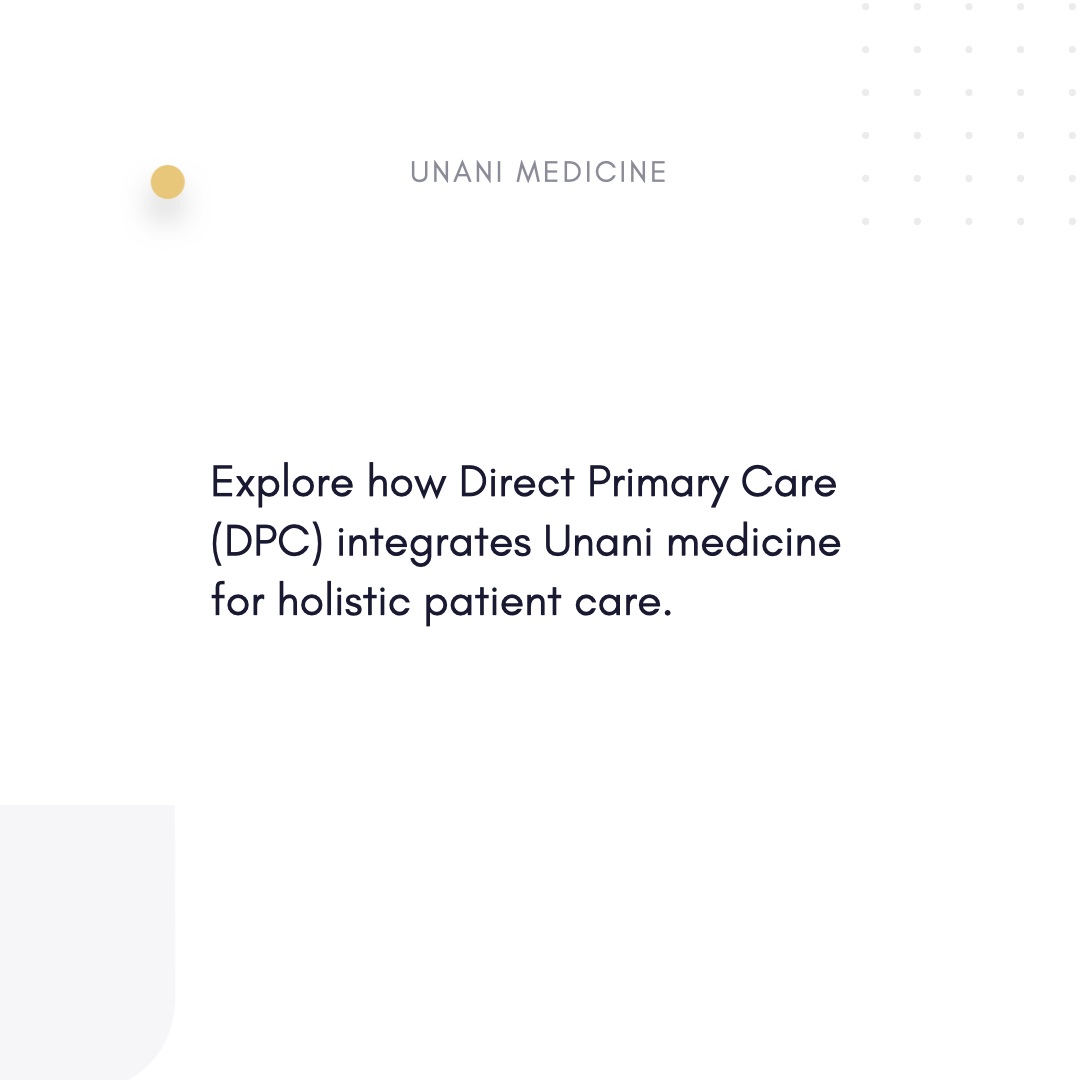



The ancient Greek healing system Unani medicine, also known as Greco-Arabic medicine, was adopted and refined by Arab scholars after it was adapted from ancient Greece. Through natural remedies, diet, and lifestyle changes, it aims to restore balance and harmony to the body. Patients who choose Unani medicine can benefit from Direct Primary Care (DPC). Here's how:
Providing Access to Unani Practitioners:
It is common for DPC practices to partner with practitioners of complementary and alternative medicine, such as Unani medicine. They can connect patients with experienced Unani practitioners who can provide consultations, diagnoses, and treatment plans tailored to individual health concerns.
Educating Patients About Unani Medicine:
Its holistic approach to health and wellness is taught by DPC providers to patients. They explain how Unani treatments work, their potential benefits, and any considerations or precautions to be aware of when integrating Unani therapies into their healthcare routine.
Coordinating Integrative Care:
By collaborating with Unani practitioners and other healthcare providers, DPC providers ensure patients receive comprehensive and coordinated care. When appropriate, they facilitate communication between different providers, allowing Unani treatments to be integrated with conventional medical treatments.
Supporting Informed Decision-Making:
By discussing the pros and cons of Unani medicine and alternative treatment options with patients, DPC providers help them make informed healthcare decisions. When developing personalized treatment plans, they encourage open communication and respect patients' values, preferences, and cultural beliefs.

Holistic Approach to Health:
By addressing the physical, mental, and emotional aspects of health, DPC promotes a balanced and harmonious state of wellbeing.
Individualized Care and Attention:
With DPC practices, patients receive personalized treatment plans that take into account their unique health needs, goals, and preferences, enhancing the effectiveness and relevance of Unani medicine interventions.
Continuity of Care:
Having a primary care provider who oversees the patient's health journey ensures continuity of care for patients with DPC. With regular monitoring and adjustments as needed, Unani treatments are seamlessly integrated into their overall healthcare management.
Accessible and Affordable Healthcare:
Unani medicine is more accessible to patients from diverse socioeconomic backgrounds thanks to DPC's affordable and accessible healthcare services. DPC eliminates barriers to accessing Unani treatments and promotes greater health equity by implementing transparent pricing and membership-based models.

Initial Consultation and Assessment:
During the initial consultation, DPC providers assess patients' health status, medical history, and treatment preferences, and may refer them to Unani practitioners for further evaluation and diagnosis.
Treatment Planning and Implementation:
DPC providers and Unani practitioners collaborate to develop individualized treatment plans tailored to the patient's needs and goals. These may include herbal remedies, dietary recommendations, lifestyle modifications, and other Unani therapies.
Monitoring and Follow-Up Care:
Patients' progress during Unani treatment is closely monitored by DPC providers, who evaluate their response to therapy and address any concerns or complications that may arise. In order to track outcomes and make necessary adjustments to the treatment plan, they schedule regular follow-up appointments.
Patient Education and Empowerment:
To support patients' recovery and well-being, DPC providers teach them about self-care practices and strategies. By providing patients with the information and tools they need to make informed decisions regarding their Unani treatment, they empower them to take an active role in managing their health.
Previous Post